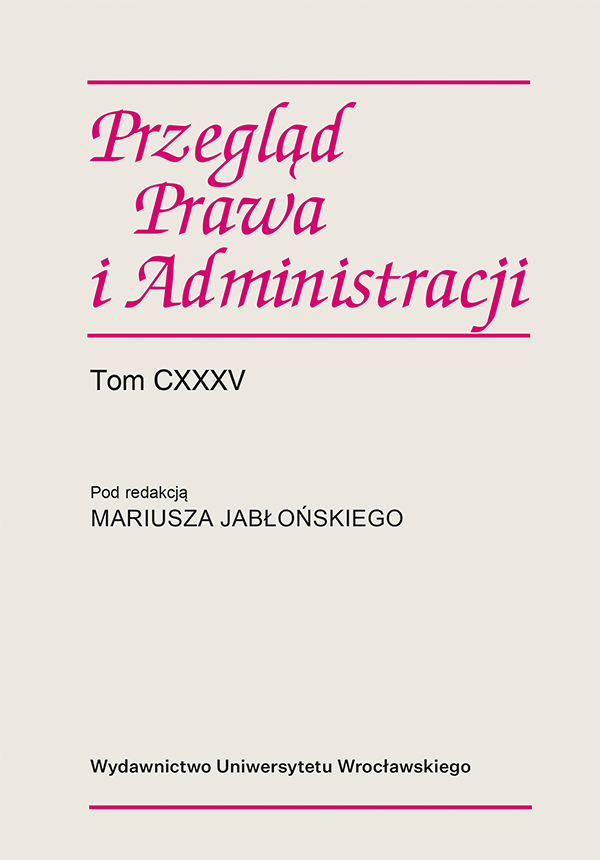

Articles

A public pharmacy may be operated only on the basis of a pharmacy license. The owner of the pharmacy must have the right to the premises in which the pharmacy is located, and the pharmacy premises must be a separate building or part of the building separated from other premises and other activities. The license to operate a public pharmacy specifies who, where and under what conditions may run a pharmacy. The license is granted in administrative decision by the provincial pharmaceutical inspector. One of the elements of the license is the pharmacy’s address. The data in the license may change, but the provisions of the law do not limit the scope of changes that may occur. Changes of data in the license may occur for various reasons and do so often regardless of the entrepreneur’s will. In the event of a data change, the entrepreneur is only obliged to notify the authority about these changes. The practice of the State Pharmaceutical Inspectorate is that any change to the data contained in the license requires the issuance of an amending decision. Changes to license to operate pharmacies should be divided into: 1) declaratory changes resulting from various legal events and not requiring the issuance of a constitutive amending decision, but only a declaratory decision confirming the change, and 2) constitutive changes, which may occur only on the basis of a final decision on amendment of license, issued pursuant to Article 155 of the Code of Administrative Procedure. Amendment of a decision of granting a license, including changing the pharmacy premises, will be possible if the public interest or justifiable interest of the party is involved. According to currently applicable legal provisions, but contrary to the jurisprudence of the Pharmaceutical Inspection authorities, changing the location of a pharmacy should be allowed by amendment of decision on grant a license, pursuant to Article 155 of the Code of Administrative Procedure.
Decyzja Głównego Inspektora Farmaceutycznego z dnia 1 czerwca 2022 roku (POD.503.82.2022. SK.2) oraz decyzja Śląskiego Wojewódzkiego Inspektora Farmaceutycznego z dnia 12 sierpnia 2021 roku (A.850.1.7.2021).
Wyrok Naczelnego Sądu Administracyjnego z dnia 2 czerwca 2009 roku (sygn. akt II GSK 985/08).
Wyrok Naczelnego Sądu Administracyjnego z dnia 21 września 2011 roku (sygn. akt II GSK 871/10).
Wyrok Naczelnego Sądu Administracyjnego z dnia 5 lipca 2016 roku (sygn. akt I OSK 1494/14).
Wyrok Naczelnego Sądu Administracyjnego z dnia 15 lutego 2018 roku (sygn. akt II OSK 992/16).
Wyrok Naczelnego Sądu Administracyjnego z dnia 27 lutego 2018 roku (sygn. akt II GSK 2510/17).
Wyrok Naczelnego Sądu Administracyjnego z dnia 4 lutego 2020 roku (sygn. akt II GSK 3025/17).
Wyrok Naczelnego Sądu Administracyjnego z dnia 4 lutego 2020 roku (sygn. akt II GSK 3291/17).
Wyrok Naczelnego Sądu Administracyjnego z dnia 5 lutego 2020 roku (sygn. akt: II GSK 2478/17).
Wyrok Naczelnego Sądu Administracyjnego z dnia 8 lutego 2022 roku (sygn. akt: II GSK 1650/18).
Wyrok Naczelnego Sądu Administracyjnego z dnia 22 marca 2022 roku (sygn. akt II GSK 1585/18).
Wyrok Wojewódzkiego Sądu Administracyjnego w Warszawie z dnia 24 października 2006 roku (VI SA/Wa 1128/06).
Wyrok Wojewódzkiego Sądu Administracyjnego w Warszawie z dnia 27 kwietnia 2010 roku (sygn. akt VI SA/Wa 427/10).
Wyrok Wojewódzkiego Sądu Administracyjnego w Warszawie z dnia 14 listopada 2018 roku (sygn. akt VI SA/Wa 1236/18).
Wyrok Wojewódzkiego Sądu Administracyjnego w Warszawie z dnia 31 października 2019 roku (VI SA/Wa 903/19; nieprawomocny).
Wyrok Wojewódzkiego Sądu Administracyjnego w Warszawie z dnia 25 maja 2022 roku (sygn. akt V SA/Wa 3721/21).